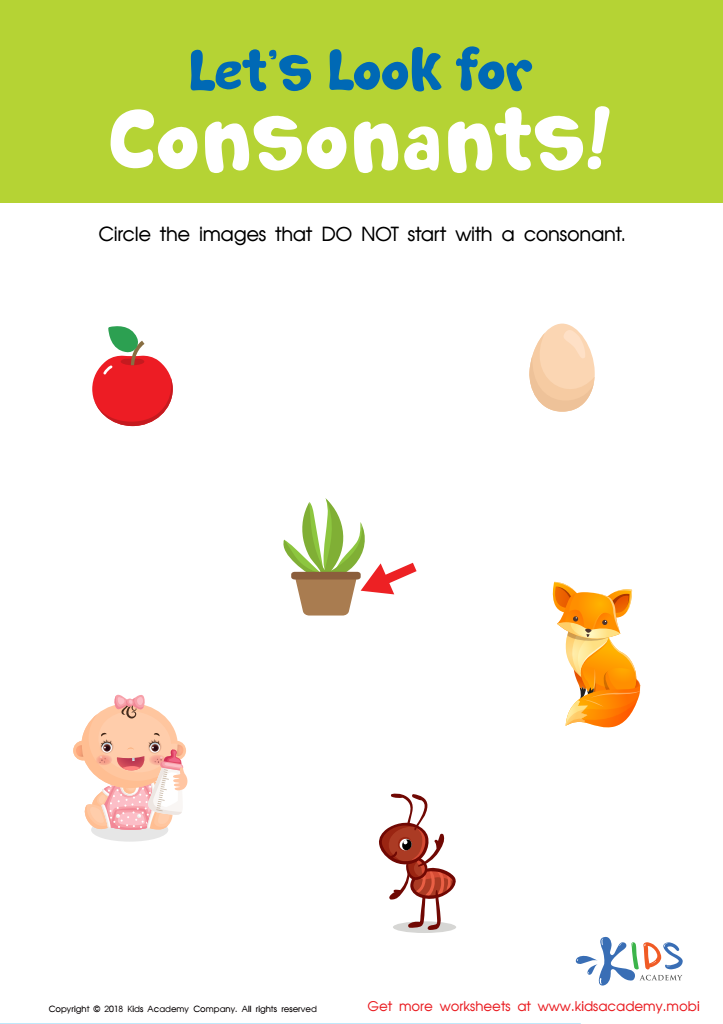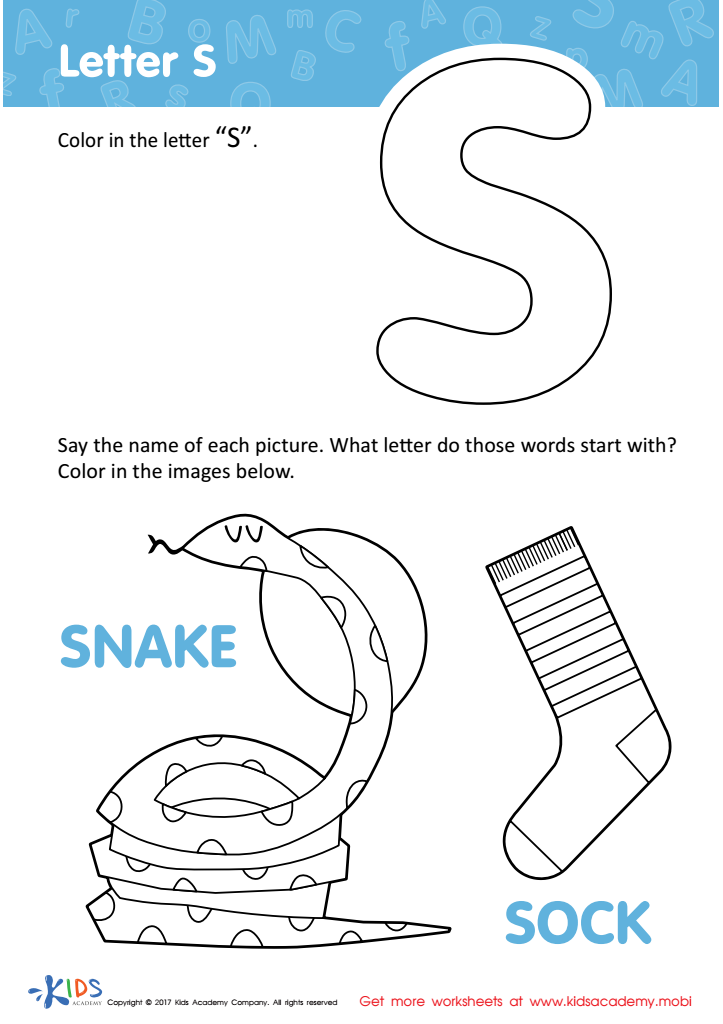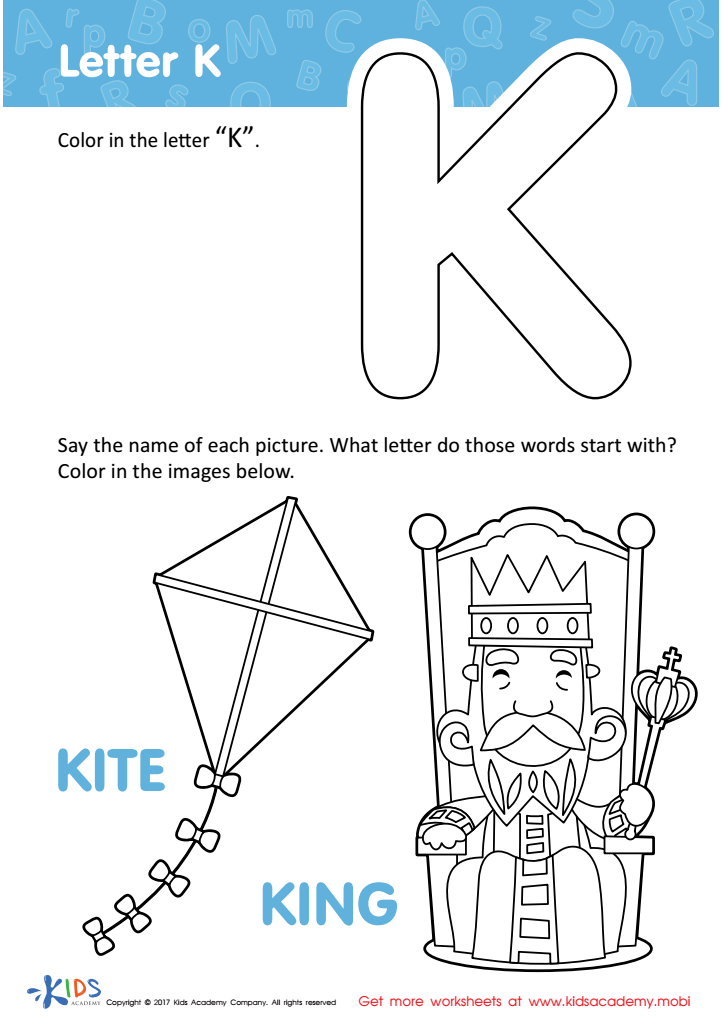Phonics enhancement Letter Recognition Worksheets for Ages 3-4
3 filtered results
-
From - To
Boost early literacy skills with our Phonics Enhancement Letter Recognition Worksheets, designed specifically for ages 3-4. Engage little learners with fun, interactive activities that build a solid foundation in letter recognition and sound association. Each worksheet combines vivid illustrations with playful exercises to make learning enjoyable and effective. These resources support preschoolers in mastering the alphabet and phonics, setting the stage for reading success. Perfect for home or classroom use, our worksheets ensure your child develops essential literacy skills in an exciting and supportive way. Explore our collection now and watch your young reader flourish!


Let's Look for Consonants Worksheet


Letter S Coloring Sheet


Letter K Coloring Sheet
Phonics enhancement and letter recognition are fundamental building blocks in early childhood education, crucial for children ages 3-4. At this developmental stage, children's brains are highly receptive to language acquisition, making it the optimal time to lay a solid foundation for reading and writing skills.
Understanding phonics— the relationship between sounds and their corresponding letters—enables children to decode words, fostering early reading skills. This not only boosts their confidence but also stimulates cognitive development, enhancing their memory, attention span, and comprehension abilities. Cultivores Phonics enhancement letter recognition also aids in speech development by reinforcing the sounds of the language. As children match sounds with letters, they fine-tune their pronunciation and articulation, which can have long-term benefits for effective communication.
Moreover, early mastery of these skills gives children an academic head start, reducing difficulties they might face when they begin formal schooling. These early literacy experiences are linked to future academic success and a lifelong love of learning. Therefore, parents and teachers should prioritize phonics and letter recognition activities, incorporating games, songs, and interactive exercises to make learning engaging and enjoyable. By investing time and effort into these foundational skills, we can provide children with the tools they need for a brighter, more literate future.
 Assign to My Students
Assign to My Students



















